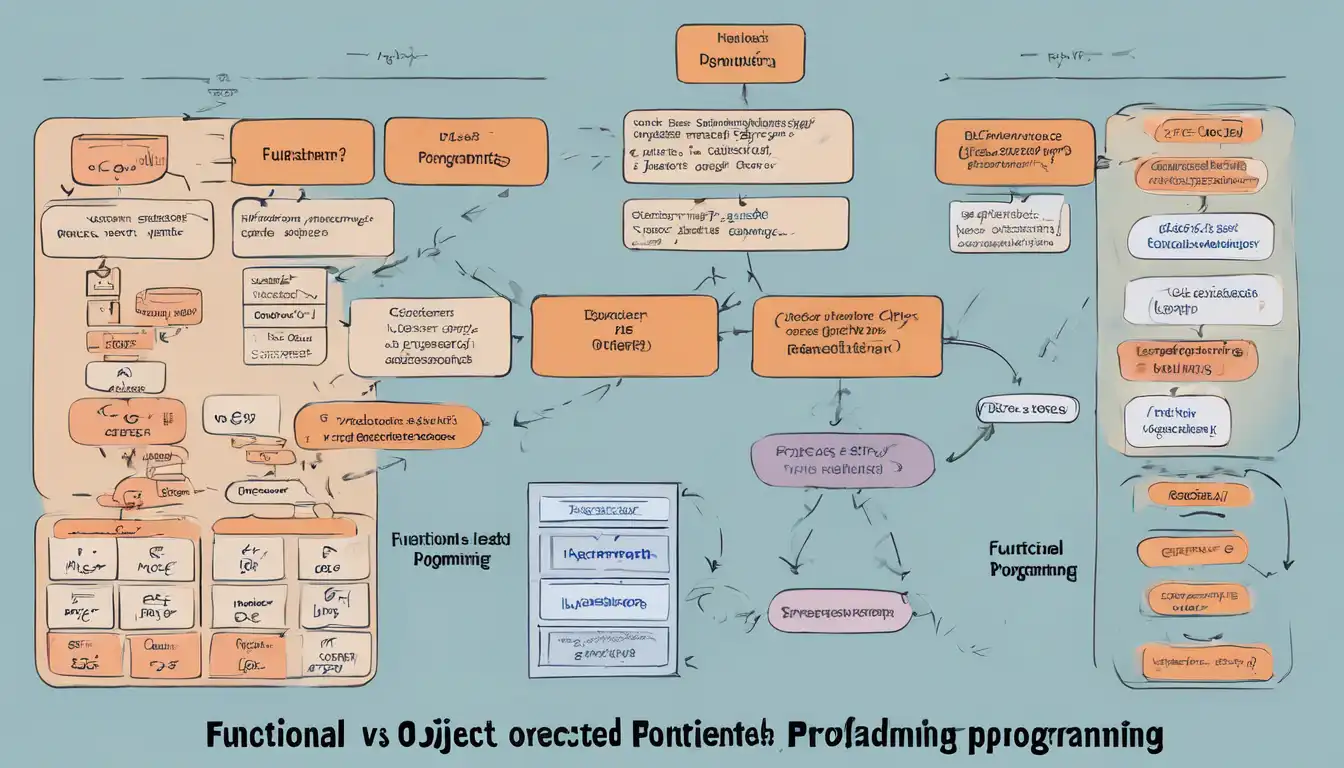Introduction to Programming Paradigms
In the world of software development, understanding the differences between functional programming (FP) and object-oriented programming (OOP) is crucial for choosing the right approach for your project. Both paradigms offer unique advantages and challenges, making them suitable for different types of applications.
What is Functional Programming?
Functional programming is a paradigm that treats computation as the evaluation of mathematical functions and avoids changing-state and mutable data. It emphasizes the application of functions, in contrast to the imperative programming style, which emphasizes changes in state.
- Immutable Data: In FP, data is immutable, meaning it cannot be changed after it's created.
- First-Class Functions: Functions are treated as first-class citizens, allowing them to be passed as arguments to other functions.
- Pure Functions: Functions in FP are pure, meaning they always produce the same output for the same input and have no side effects.
What is Object-Oriented Programming?
Object-oriented programming is a paradigm based on the concept of "objects", which can contain data and code: data in the form of fields, and code, in the form of procedures. OOP focuses on the objects that developers want to manipulate rather than the logic required to manipulate them.
- Encapsulation: OOP bundles the data and the methods that operate on the data into a single unit or class.
- Inheritance: This allows a class to inherit properties and methods from another class.
- Polymorphism: It enables one interface to be used for a general class of actions.
Comparing Functional and Object-Oriented Programming
When deciding between FP and OOP, consider the nature of your project. FP is often favored for applications requiring high levels of concurrency or those that are data transformation-heavy. OOP, on the other hand, is well-suited for large, complex systems that are easier to manage when divided into groups of objects.
Performance Considerations
Functional programming can offer performance benefits in certain scenarios due to its emphasis on immutability and pure functions, which can lead to more predictable code and easier debugging. OOP can sometimes introduce overhead due to its object management but provides a clear structure for organizing code.
Scalability and Maintenance
Both paradigms offer pathways to scalable and maintainable code, but the choice depends on the team's familiarity and the project requirements. FP's stateless nature can simplify scaling, while OOP's modularity can make maintenance more straightforward.
Conclusion
Choosing between functional and object-oriented programming depends on various factors, including project requirements, team expertise, and performance considerations. By understanding the strengths and weaknesses of each paradigm, developers can make informed decisions that best suit their needs.
For more insights into programming paradigms, check out our articles on Programming Paradigms and Software Development Best Practices.
